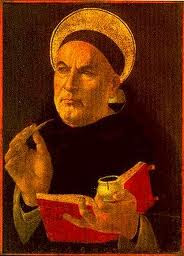Third Tuesday
CHRIST is TRULY OUR REDEEMER
You were redeemed with the
precious blood of Christ, as of a lamb unspotted and undefiled. 1Peter 1:19.
By the sin of our first parents, the whole human race was alienated
from God, as is taught in the second chapter of the epistle to the Ephesians. It was not from God s
power that we were thereby cut off, but from that sight of God s face to which His children and
His servants are admitted. Then again we descended beneath the usurped power of the devil. Man had
consented to the devil s will and, thereby, had made himself subject to the devil ;
subject, that is to say, as far as lay in man s power, for since he was not his own property, but the property
of another, he could not really give himself away to the devil. By His Passion, then, Christ did two things. He freed us from the power of the enemy, conquering him by virtues
which were the very contraries to the vices by which he had conquered man by
humility, namely, by obedience and by an austerity of suffering that was in direct opposition to the enjoyment
of forbidden food. Furthermore, by making satisfaction for the sin committed, Christ
joined man with God and made him the child and servant of God. This emancipation had about it two things
that make it a kind of buying. Christ is said to have bought us back or to have
redeemed us inasmuch as he snatched us from the power of the devil, as a king
is said, by hard-fought battles, to redeem his kingdom that the enemy has
occupied. Christ is again said to have redeemed us inasmuch as He placated God
for us, paying as it were the price of His satisfaction on our behalf, that we might
be freed both from the penalty and from the sin.
This price, His precious
blood, he paid that he might make satisfaction for us not to the devil but to God. Again, by the victory that His Passion was, he took
us away from the devil. The devil had indeed had dominion over us, but unjustly, since what
power he had was usurped. Nevertheless, it was but just that we should fall under his yoke,
seeing that it was by him we were overcome. This is why it was necessary that the devil should be
overcome by the very contrary of the forces by which he had himself overcome. For he had not overcome by
violence, but by a lying persuasion to sin.








